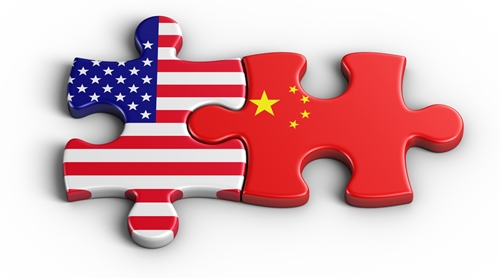US retailers can now create online marketplaces in China
Marketplaces have not only become increasingly popular among smaller merchants, which are utilizing name-brand platforms such as Amazon to increase their reach, but also among marketplace creators. More brands are realizing the potential revenue increases they can gain by allowing other merchants to sell through them. Marketplaces are not limited to sellers either – for example, a fashion magazine could open a marketplace that allows popular brands to sell clothing articles straight to readers.
China opens its doors to foreign online marketplace owners
Operating online marketplaces is about to get a whole lot sweeter as well, with marketplace owners able to extend their reach significantly – to the tune of about 1.3 billion people. For a long time, China has regulated online marketplaces and portals. In the past, merchants were able to operate their own online stores in the country, but they could not open marketplaces to protect the interests of domestic companies.
However, Internet Retailer recently reported that a new policy change from China’s Ministry of Industry and Information Technology allows foreign companies to wholly own businesses that operate in the area of “online data process and e-business transactions.” In other words, the law allows international companies to operate their own online marketplaces in the country, as long as operations are based in Shanghai’s Free Trade Zone.
“For the Chinese government, the e-business transaction type of business means online marketplaces,” says Shao Jun, a partner in the Shanghai law firm Yuantai, tells Internet Retailer. This will allow firms to operate their own Amazon or eBay-inspired stores and extend their reach to the 1.3 billion prospect customers within China.
Numerous retailers have rallied in China to get the country to change the law, most notably Wal-mart in 2010. Now that foreign companies are allowed to open marketplaces in the region, it can only be assumed many brands will look to seize the opportunity.
Operating a successful marketplace
Marketplaces can be beneficial for retailers and other brands alike. For example, launching a marketplace allows retailers to greatly expand their inventory offerings – even if they do not normally carry particular SKUs, they can utilize marketplace sellers to cover the gap. In essence, running a marketplace is quite similar to leveraging drop shippers, except the marketplace owner gives up a piece of its brand in order to provide sellers with more independence.
If retailers want to open a marketplace, whether it serves customers in China, the United States or anywhere else in the world, they need to be prepared to do so. Opening a marketplace is no easy task, particularly when it involves appealing to customers overseas.
Fortunately, there are a variety of technological solutions that can aid the creation of a third-party marketplace. Whether this involves a group of retailers or a solitary company, technology plays a pivotal role in setting up marketplaces and managing them after they get rolling. Selecting the appropriate eCommerce solution with channel listing features allows retailers to become centerpieces of their respective marketplaces, making the entire process easier than it may seem at first glance. Retailers can upload and manage products, while the marketplace owner focuses on macro concerns. It’s a hands-off approach that benefits everyone involved.
At the end of the day, the key is making a marketplace that is not only easy for the owner to manage, but also for the seller to use. Amazon and other marketplaces are not just popular because of the audiences they reach, but also due to how easy they are to utilize.

